Several well-known Catholic priests, speakers, and writers have recently talked about the issue of homosexuality and purposefully emphasized the point: that a homosexual attraction, desire, or inclination is not a choice. Here are some examples:
“But same-sex attractions are not chosen…We can’t choose who we’re attracted to…” – from a blog entry titled “Why I’m Not Ashamed of My Same-Sex Attractions;” posted to the Chastity Project
“That’s the way God created you. I think almost every psychologist and biologist and scientist would agree on that; and certainly LGBT people will tell you that’s the way they always felt – that they had been created that way.” – James Martin
“We have to welcome gay people and accept them as they are and accept it’s not a changeable thing, it’s not a choice – the Church does say that.” – Fr. Michael Holleran
While these Catholic men and women have taken upon themselves to state, or more precisely misstate, what the Church declares on this issue, in reality there have been no definitive pronouncements made by the Magisterium concerning the origins of homosexuality. Here is actually what the Church proclaims:
“This inclination, which is objectively disordered, constitutes for most of them a trial.”
“…the Church’s wise moral tradition is necessary since it warns against generalizations in judging individual cases…What is essential is that the fundamental liberty which characterizes the human person and gives him his dignity be recognized as belonging to the homosexual person as well.”
“Although the particular inclination of the homosexual person is not a sin, it is a more or less strong tendency ordered toward an intrinsic moral evil; and thus the inclination itself must be seen as an objective disorder.”
While these statements seem unequivocal, I think a problem has arisen because of a certain passage in the 1975 document “Persona Humana;” here, there is a distinction made between “homosexuals whose tendency comes from a false education, from a lack of normal sexual development, from habit, from bad example, or from other similar causes, and is transitory or at least not incurable; and homosexuals who are definitively such because of some kind of innate instinct or a pathological constitution judged to be incurable.” In other words, there are homosexuals who have attractions towards the same-sex because of a certain confusion, maladjustment, or psychological distress, while others were simply born (innate) with an intrinsic nature, or they are so severely mentally disturbed, that their condition is judged terminal (incurable).
For this reason, in a 1986 “Letter to the Bishops of the Catholic Church on the Pastoral Care of Homosexual Persons,” these ambiguities within “Persona Humana” were directly addressed:
“In the discussion which followed the publication of the Declaration [“Persona Humana”], however, an overly benign interpretation was given to the homosexual condition itself, some going so far as to call it neutral, or even good.”
The “Letter” then goes on to state that homosexuality is a “strong tendency ordered toward an intrinsic moral evil; and thus the inclination itself must be seen as an objective disorder.” Therefore, homosexual inclinations are not in and of themselves “sinful,” but the disposition (inclination) or attraction is a “disorder.”
Only, the theory of “innate” homosexuality made another appearance in a Church document: this time in “The Catechism of the Catholic Church.” The original (1992) edition of “The Catechism,” included the following statement: “[Homosexual persons] do not choose their homosexual condition; for most of them it is a trial.” In 1998 this was revised to: “This inclination, which is objectively disordered, constitutes for most of them a trial.”
The section that claimed those with same-sex attraction: “do not choose their homosexual condition” was dropped. This was an incredibly meaningful revision. Because, for those, like myself, who grew-up thinking that because we did not choose to be gay, we also thought that we could not choose something other than gay.
Therefore, in my opinion, it’s completely unproductive, and even harmful, to even tell a young person, let alone stress the idea, that they did not “choose” to experience same-sex attractions, because it is precisely this rational (that someone does not choose their attractions, therefore they do not choose their orientation) which feeds into the “born gay” narrative. Because it is incredibly naive to think that someone with same-sex attraction, even if they are adamantly struggling with those feelings, will not almost unconsciously consider themselves gay once a person in authority (a priest, teacher, or counselor), or a well-respected Catholic personality, tells them that they did not “choose” to have same-sex attractions – thus, they did not choose to be “gay.” While the Church rightly distinguishes the attraction from the fundamental identity of the person, still for most adults, this is a difficult concept to accept especially in an age where identities have been exponentially multiplied; with the validity of that self-declared identity often hinging solely on the testimony of the individual.
Proving that bad theology is more difficult to kill than a vampire, despite several clarifications from the Magisterium, there are voices, some on the fringes and others at the center of Church discourse, who continue to push the “innate” narrative:
Andrew Sullivan, a well-known “gay” Catholic columnist believes that “Persona Humana” marked a significant “concession” in terms of how the Church views homosexuality; in his 1995 book “Virtually Normal,” he wrote: “…suddenly in the 1975 document…There was, it seems, in nature, a group of people who were ‘definitively’ predisposed to a violation of…natural law; this condition was ‘innate’ and ‘incurable.’”
Melinda Selmys, a Catholic author and blogger, who is married to someone of the opposite sex, but still identifies as “queer,” repeated the “innate” argument concerning the origins of homosexuality during her address at a 2012 Courage Conference: “I think it’s necessary to move beyond the horizons of early childhood experience, towards the innate dispositions which caused me to experience gender relations in the way that I did. These dispositions have always been with me, shaping my relationships and unfortunately – no amount of motherhood, apple pie, hot straight sex, prayer to the Virgin has caused them to disappear.”
Even the highly problematic 1997 statement of the U.S. Bishops on homosexuality titled “Always Our Children” cited the First Edition of “The Catechism” to make explicit that same-sex attraction is beyond the influence of choice: “Generally, homosexual orientation is experienced as a given, not as something freely chosen. By itself, therefore, a homosexual orientation cannot be considered sinful, for morality presumes the freedom to choose.”
This contention is often repeated:
From a publication posted by the Diocese of Cleveland Gay and Lesbian Family Ministry:
As Robert Nugent has stated in his article, “Homosexual Rights and the Catholic Community,” (Doctrine and Life 44 (1994): 166) “From contemporary research in the development of sexual identity, sexual orientation seems to be discovered rather than chosen…”*
-Here, it should be noted that Robert Nugent, along with Sister Jeannine Gramick, the co-founders of the dissident group, New Ways Ministry, were officially silenced by the Vatican in a 1999 “Notification,” which declared: “Sister Jeannine Gramick, SSND, and Father Robert Nugent, SDS, are permanently prohibited from any pastoral work involving homosexual persons.”
The “discovered” not chosen theory of the homosexual orientation was repeated several times in the influential book “With Listening Hearts” by Peter J. Liuzzi who was also the longtime head of the Archdiocese of Los Angles Catholic Ministry to Lesbian and Gay Persons.
This claim has also made its way into official diocesan level documents, for example: in the “guidelines” from the Archdiocese of San Jose, California, with regards to “pastoral” considerations, when counseling someone with same-sex attraction, priests are instructed not only inform the individual that they had no choice concerning their orientation, but that they also cannot change it. According to the document, “Diocese of San Jose Guidelines for The Catholic LGBT Ministry Council,” Catholics priests within the Archdiocese should “not presume any particular social or psychological analysis of sexuality in our society, except for a generally accepted premise that individuals do not choose and cannot change their sexual orientation but must understand it and integrate it into their life of faith and conscience.”
When I returned to the Church, in 1999, suffering both physically and psychologically after over a decade as an active homosexual male, I was dying and I was desperate. I wanted to know if anything that had happened to me, up till then, from my own intransigent belief that I was “gay” to why so many of my friends had died early and excruciating deaths, made any sense or was I just the hapless victim of circumstance and bad-timing. Yet, I already knew one thing, that Jesus Christ had somehow taken pity on my despicable plight and lifted me out of the pigsty of my life. Strangely enough, when I was well enough to walk again, I turned almost at once to the library of my religious parents and immediately picked two books: “The Bible,” and ‘The Catechism of the Catholic Church.”
Unfortunately, the edition of “The Catechism” that I read was the original which included the confusing assertion that homosexuals “do not choose” their condition. I struggled with that. If true, my life had been nothing but an orchestrated horror-show staged solely for God’s amusement. Why else would He create someone with an inclination so strong, that it literally becomes a part of your identity, and then arbitrarily declare that who you are, and what you feel – is a disorder. I thought to myself: this God is malicious and vengeful; He made me “gay,” made it part of who I am, made it so I needed to sexually bond with another man – and then told me that the feelings He gave me were wrong. It was like making a fish – and then telling it: you are not allowed to swim. I became angry, after all, He created straight people as sexual beings – only, at least within marriage, it was possible for them to express those same feelings; and that their sexuality could even be sacred, but mine was forever damned. And, without the possibility of marriage, there was no hope for me.
Yet, this God, who made me “gay,” and then condemned me if I acted on the feelings I was born with, was also the God who saved me. For, at the time of my near-death, I had never once thought of Jesus Christ in many years; in fact, I had long given-up on His supposed existence. Nonetheless, the God I had abandoned was the God who gave me another chance at life; because when I called out to Him, by Name, the fear of my imminent death – immediately disappeared. And now, I was alive.
That God was kind and merciful. The God from “The Catechism,” I didn’t like very much. He was inconsistent. Why was He treating homosexuals differently from the favored-race of heterosexuality? It didn’t make sense.
Looking for answers, I turned to the Catholic Church. But, I couldn’t find any. For the first priest I spoke with told me that indeed: “I had been born gay.” His recommendation? To find a man I could settle down with.
Although I was wholly uneducated on matters of the Faith, I just knew in my heart that this man was wrong. Over the next few months, I somewhat aimlessly wandered from parish to parish when suddenly I met a confident and fearless looking priest who also seemed improbably kind. After a few short conversations with me, during which I emphatically affirmed (over and over) that I could be chaste, but that being “gay” wasn’t my choice, and that, in fact, I would always be “gay,” the completely unperturbed priest inexplicably asked: “Which edition of the Catechism do you own?” I told him I didn’t know. “What did it matter?” I asked. He said, …it mattered.
“[Homosexual persons] do not choose their homosexual condition; for most of them it is a trial.”
“This inclination, which is objectively disordered, constitutes for most of them a trial.”
Over the next few days, I compared the two statements. At least for myself, the change between the editions was highly significant; for, if someone is born (or predestined) with an innate characteristic, and that characteristic is also a “strong tendency ordered toward an intrinsic moral evil,” what does that say about the God who created such a person?
Then I knew that none of what I believed about the capricious God who created me “gay” was true, because God did not make me “gay” and He did not make me “disordered.” The false God who made me “gay,” did not allow me to choose. But the real God who Saved me, He allowed me to make the choice – and now I chose Him and not “gay.”
When I saw Father again, he asked me if I read it. Then, in his matter-of-fact voice, folding his arms and looking at me, he said: “And what did you learn?” “That I wasn’t born “gay.” I said.
One of the things I had hammered Father about was: “Why – did this happen?” “Why – did this person die?” “Why – didn’t I die?” Father talked about choices, about my choices. In this – he was trying to give me back some of my dignity; that I hadn’t always been a wastrel; that I was constantly an active-agent in my life – even though it seemed infinitely out of control. That, indeed, I made choices. That my life hadn’t all been about my victimization. He also encouraged me to own what had happened and what I had done – and to move on. Lastly, sometimes the best answer – is a none-answer. With regards to the life I lived, and the life many of my friends never got to finish, Father didn’t have a compete answer for that. It was a mystery.
Having mysteriously survived, I gained a certain amount of clarity from barely dodging death, but one of the greatest enigmas remained: as a child, could I (or would I) have chosen differently? Or – was my path always set before me?
Growing up in the 1970s, the first full decade in which homosexuality was not only tolerated but celebrated, for a confused young boy with same-sex attraction, the logical conclusion was: “I am gay.” At the time, many in the Church remained curiously silent, yet, perhaps inadvertently contributing to the misunderstanding by proliferating the belief that some may just have an “innate” disposition towards homosexuality
Yet, on the cusp of “coming-out,” in my heart I knew I didn’t want to be “gay,” because, especially in 1988, which was the height of the AIDS crisis, the route of homosexuality was clearly a much scarier and more dangerous path than the far easier one taken by men who solely liked women. But, I felt inexorably compelled. As if, denying gay was like denying myself.
At the time, I felt as if I did not have another option. Was that my fault? Or was it the failure of the existing religious structures? All these years later, as a child and a teenager, many have said to me that they recognized my struggle. But they didn’t know what to do, or how to help. When I did reach out to a Catholic priest, he rightly warned me about the perilous health dangers connected with homosexual activity, but assured me that I had nothing to be ashamed of – because, after all, God made me gay.
When someone is told that they were born “gay,” especially a young Catholic: almost immediately, or as soon as the person discovers what the Church “officially” teaches about homosexuality, a conflict is created: between what Fr. John Harvey described as a “false identity” and an image of a God, or the Church, that disdains and condemns their innermost self. At that contradiction, most leave Catholicism – never to return. A few, stay in the Church, albeit at “gay-friendly” parishes, that facilitate a rather desperate need to believe in a redeemable hierarchy which will one day embrace the innate desire of homosexuals to express their love both emotionally as well as physically. Still fewer, have taken the odd stance that indeed homosexuals are born “gay,” but that God allows for an intense form of “spiritual friendship” in order to offset the sex drive. But because these peculiar same-sex friendships primarily attract those with “gay” tendencies, they are inevitably rife with a homoeroticism that creates such incongruous leaps in logic as: “I found myself delighting in certain men in a way that was distinctly gay but also chaste…” This reminds me of a series of conferences currently being given by a Catholic priest at a parish in the Archdiocese of New York which reportedly sees “Scripture through an LGBT lens.”
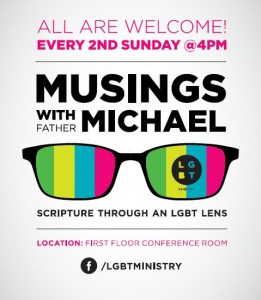
However, I wasted most of my life looking at the world, and myself, through rainbow colored glasses. When I finally decided to take a look around with the eyes that God gave me: I could see things much clearer. I recognized that I was not predisposed towards a homosexual orientation, nor was I set-up, by the strained circumstances of my childhood, for a life of alienation and loneliness that I thoughtlessly believed would only disappear while in the arms of another man. For Christ predicted the rise of false prophets and that many would be led astray. Like countless others, I was tricked, and in my ignorance, the deception was blatantly uncomplicated.
The God of Mercy, who loved me, and whom I learned to love, did not hang on the Cross and die an excruciating and humiliating death so I could be born both “gay” and “disordered.” He died, so that someday, I could choose Him.
When I was a child, I thought like a child. Although I did not choose to be exposed to pornography at a young age, nor did I choose to have the boys at school mercilessly pick on me, but what I did choose was how I reacted to those situations. Albeit my choices, at the time, were incredibly immature and often influenced by stress – nevertheless, they were my choices. Because, long before the first inklings of arousal, or even attraction, initially entered my mind, I was first and foremost a boy who had been hurt. And I reacted. I chose to reject my tormentors, as well as those who ignored and belittled me. I chose to shrink away, and to hide myself in a fantasy world of make-believe and pretty pictures. Gradually, I also chose to solemnly adore those whose acceptance, and even love, I overwhelmingly longed for.
Then I remembered a friend, long since dead of AIDS, who told me, while in a semi-stupor, about his horrendously abusive father. I never quite believed what I thought were his exaggerated tales of severe physical abuse because my own much less significant travails during childhood easily vanished in comparison to his. I simply couldn’t relate; or I didn’t want to believe that a child could endure such hellish pain. After his death, I learned, a few years later, that his brother had died of a drug-overdose. Two brothers, in the same situation, but both responded similarly and also somewhat differently: one lost himself in “gay” and the other in a heroin-filled syringe. Bad choices. But was there more to the story? Had God created some lucky boys and girls, and placed them into relatively stable homes, or gave them the gumption to decisively stand-up to schoolyard bullies, while simultaneously making a hapless bunch of saps that got dropped into dysfunction?
Ever since the Lord gave me another chance, one last choice, I have struggled with the fact that I am alive when so many young men that I knew, who were far less devious and perverted than myself, sometimes died within a few short years of reaching San Francisco. I remembered going to the funerals of men in their 20s and 30s and thinking that the carnage seemed random. And, although, I had given up on such archaic moral distinctions as right or wrong – the senseless massacre of these beautiful human beings felt indelibly evil. I couldn’t explain that feeling; it was mysterious. But it always stuck with me. And I remembered the friend who died of AIDS and how I didn’t believe his story.
Nearly twenty years after his death, I contacted his sister. Even though I didn’t ask, while we were talking about her brother, she told me that the stories of abuse were all true; and the details were worse than what I could have imagined. I was ashamed that I didn’t do something to help him. I still think of him often and I wonder what choice, what options that frightened miserable boy had. Very few – because, he had been touched by evil. And, at least for me, that was the key: the mystery of evil. Because in homosexuality, you have what I believe is a rather rare confluence of abuse, mental illness, identity, the demonic – and choice.
Therefore, to simply say that someone who experiences same-sex attraction did not choose those attractions is to unfairly disregard the possibility of evil, the existence of cruelty and neglect, and the power of a false identity to make it all seem normal. And, this is a sign of our failure as both Christians, and as a Catholic community, because we tended to solely focus on the distractions, such as: never-ending discourse, the concerns of pining adult “gay” Catholics, and coming up with new ways to “dialogue,” when we should have been confronting the reality of broken families and broken lives. Simultaneously, there was almost a complete abandonment of the Truth, with certain language from “The Catechism” deemed as “unpastoral.” Yet, the only auxiliary for the often unavoidable harshness of the Truth has been vague meaningless jargon like “accompaniment.”
Essentially, I think it’s all a false form of charity, meant, not to make the person with same-sex attraction feel more comfortable and welcomed, but to single out the seemingly altruistic individual who wishes to make it clear to himself, and the world, that: I am not like those other people…I understand you, and I care. Yet, the repetition of the “not chosen” theory is actually detrimental and could potentially push the conflicted and confused into believing that perhaps they were – just born gay. But genuine understanding and caring begins, not with platitudes, but with honesty and with the Truth. What these men and women urgently need is compassion – and clarity! They do not need conjecture.
*(Reprinted from the Ascension of Our Lord Catholic Church Bulletin, Summer of 1997.) People of God Who are Gay or Lesbian: A Catholic Pastoral Response by Fr. Joseph Fortuna (First in a series)

(Above: From “Cominidad,” which is an officially recognized “welcoming outreach to lesbian and gay Catholics” in the Archdiocese of Los Angeles; although they clearly (in bold) quoted the earlier edition of the Catechism and the redacted phrase “we did not choose,” they conspicuously make no mention of chastity. )
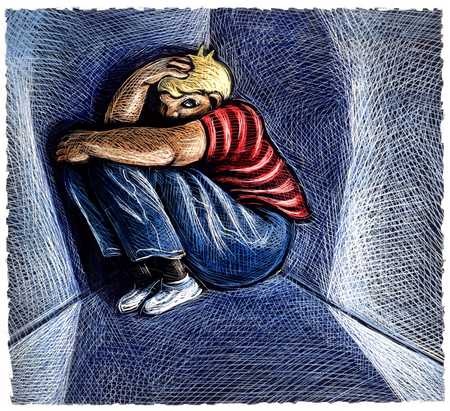
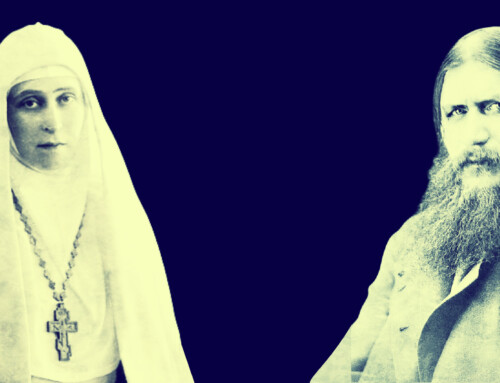
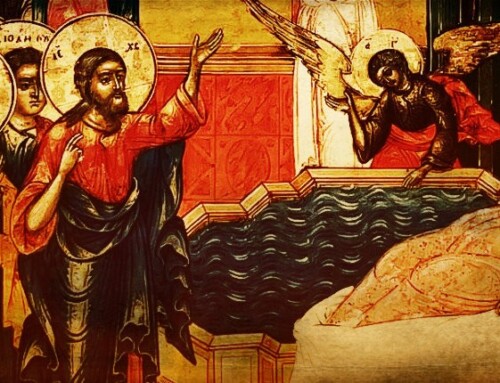
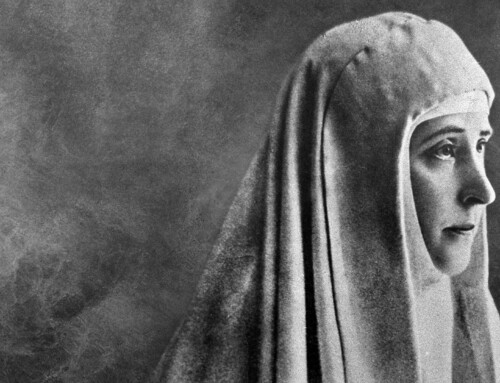
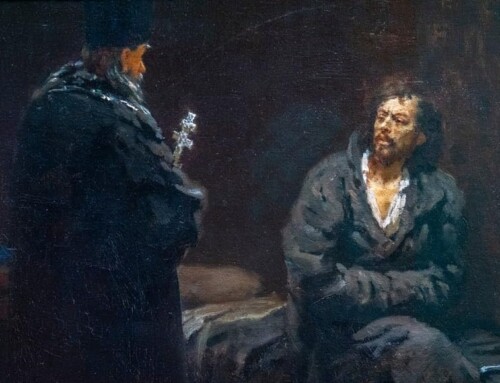
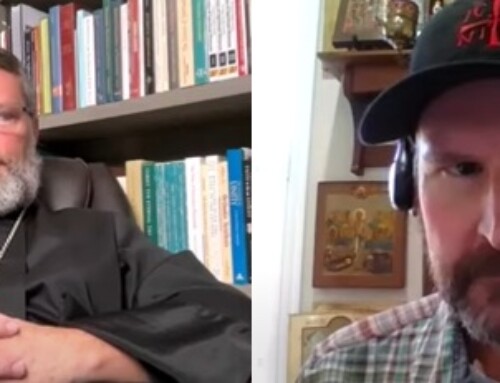
Excellent points, sir. By featuring real people and their stories, the video produced by Courage lends credence to the proposition that homosexual orientations are not dyed in the wool at birth, as it were:
https://everlastinghills.org/
Joeseph, You are truly a light in the darkness. Your articles have helped me understand not just where my brothers and sisters in Christ with homosexual attractions are coming from but also hope on my own journey.
As the mother of teenagers I feel helpless sometimes when considering the world they are about to enter. So
many of my nieces and nephews who have grown up in the Faith have left. While some of your articles are very
graphic I know sometimes the truth has to pierce the fog of our apathy. My mother’s heart cries when I see the
darkness and perversion so many of our sons and daughters walk in. I know your ministry can’t be easy but is
so necessary. On those days when it seemd difficult to go on I want you to know every Thursday at my adoration
hour I place you and your needs before the living prescence of Our Lord. His blessings be ever with you.
I wonder, Joseph, has any one ever told you they left homosexuality because of the acceptance they found in groups like Cominidad?
No. What these ministries do is confirm the confused into the homosexual orientation; I talk about this here: https://www.youtube.com/watch?v=_2PJaYZmZsI